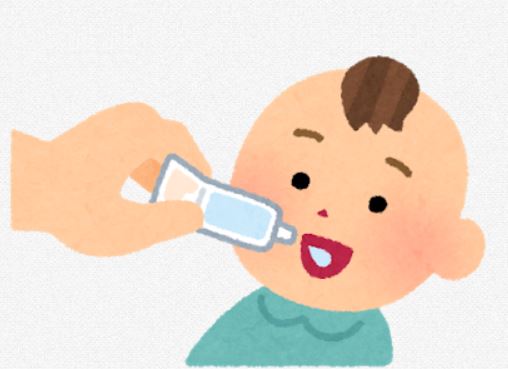
16 Oct As of October 1, 2020, vaccination with a rotavirus vaccine has become a routine procedure for babies who were born on or after August 1, 2020.
Two types of rotavirus vaccines are available in Japan:
- Rotarix
Babies aged 6-24 weeks* receive two doses orally, with a minimum interval of 27 days between doses.
*Note that this age limit is strictly inclusive, meaning that babies younger than 6 weeks old or older than 24 weeks old are excluded.
- Rota Teq
Babies aged 6-32 weeks* receive three doses orally, with a minimum interval of 27 days between doses.
*Note that this age limit is strictly inclusive, meaning that babies younger than 6 weeks old or older than 32 weeks old are excluded.
Both vaccines are safe and effective, but regardless of which vaccine you choose, the same brand of vaccine must be used for the full course.
To avoid the risk of intussusception (an intestinal condition) the first dose of either vaccine should be administered between the ages of 8 weeks (2 months) and 14 weeks 6 days and not a day later. (i.e. before turning 15 weeks old)
Rotavirus vaccination is provided at designated medical facilities. If your child is eligible, vaccination is free of charge.
The list of medical facilities for vaccination ( Japanese).
Rotavirus and Rotavirus vaccination
Rotavirus infection is the most common cause of severe gastroenteritis in infants and young children (from birth to about 6 years old). The illness is highly contagious and causes severe diarrhea and vomiting. It can result in complications and hospitalization. See pdf for more details.: Rota Virus Information.pdf
Infants are susceptible to infection immediately after birth, so getting the Rotavirus vaccination early is necessary.
Both Rotarix and Rota Teq are safe and effective, and both are oral vaccinations. These vaccinations can reduce the onset of gastroenteritis caused by rotavirus by 70-80% and can prevent almost all severe conditions that lead to hospitalization. The sole difference between the two types of Rotavirus vaccine are the number of doses, so the main consideration for parents is the vaccination schedule.
Rotavirus vaccination and intussusception

Source of the image above: Japan Pediatric Society 13ロタウイルス (jpeds.or.jp)
Intussusception is a serious condition in which part of the intestine slides into an adjacent part of the intestine causing intestinal obstruction. The earliest onset for intussusception is when a baby is around 3-4 months old. The probability of having intussusception increases up until the child is one year old. Although vaccination doesn’t prevent this disease, the symptoms associated with Rotavirus (e.g. gastroenteritis) can exacerbate the effects of intussusception, complicating the condition. Therefore, the early administration of the Rotavirus vaccination is key. Where complications are avoided, early treatment of intussusception will allow it to be cured without the need for surgical intervention.
*However, note that some researchers have reported that the risk of intussusception increases within one to two weeks after the receipt of the rotavirus vaccination as compared to not getting vaccinated.
If your baby has even one of the symptoms below, please visit a doctor and advise him or her as to which of the above vaccinations (Rotarix or Rota Teq) that your child has received:
- repeated crying and crankiness,
- repeated vomiting,
- lethargy and pale face, or
- bloody stool.
Please consider the efficacy and the side effects of the Rotavirus vaccine before deciding whether your child will receive it.
If you have any concerns about symptoms which have developed after the vaccination and which seem to be one of the side effects, please consult with your child’s doctor.
What you need to bring for Rotavirus vaccination:
- health insurance card etc. with your baby’s name, birthdate, and address on it;
- maternal and child handbook; and
- the vaccination questionnaire.
You can download the vaccination questionnaire from here (in Japanese-English) or get it at health centers and designated medical facilities.
After carefully reading about the Rotavirus vaccine, please decide whether it is right for your child. The consent of a parent or guardian is necessary, and the vaccine will not be provided to a child without the signature of his or her parent or guardian.
Based on information of Prevention and Control Section of Infectious disease, Sapporo Public Health Office


